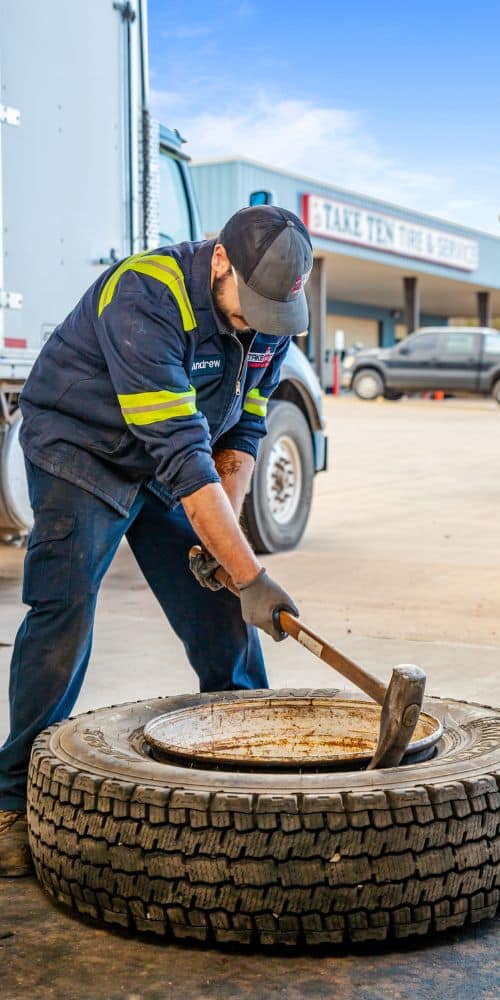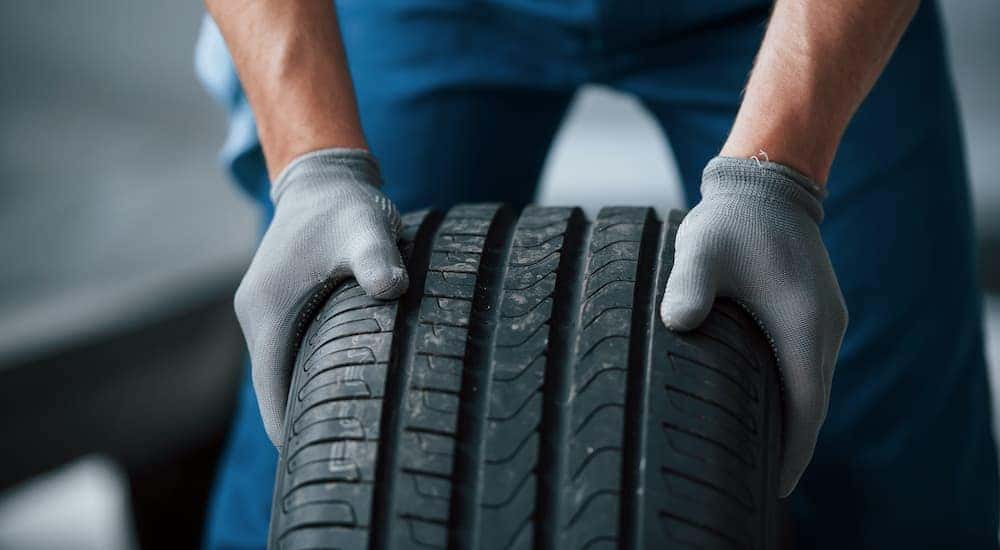The Link In Between Tire Service and Fuel Performance
Effectiveness in gas consumption is a vital issue for automobile owners looking for to maximize their driving experience. Amongst the various factors that influence fuel performance, tire solution stands apart as a critical element that typically goes ignored. The complex relationship in between tire upkeep and fuel economic climate is a testimony to the complex operations of a car. By recognizing exactly how tire care directly impacts the performance of your automobile, you can open a world of opportunities that not only boost performance yet also add to set you back savings in the lengthy run.
Value of Correct Tire Inflation
Correct tire rising cost of living is an essential aspect in maximizing fuel efficiency and making sure ideal vehicle performance. On the various other hand, overinflated tires can lead to a harsher ride, uneven tire wear, and reduced grip - morris tire.
Maintaining the correct tire pressure not only boosts gas performance however additionally enhances driving safety. Routinely checking and adjusting tire stress, especially before long journeys, is a simple yet efficient means to optimize your car's gas economic climate and make sure a smooth driving experience.
Impact of Tire Tread Deepness
Maintaining the recommended tire stress is necessary for optimal car performance and fuel performance; in a similar way, the walk deepness of your tires plays a crucial role in ensuring security and traction when traveling. Tire tread depth directly affects the capability of your tires to hold the roadway surface, particularly in wet or slippery problems. As tires use down, their step deepness reductions, influencing their capacity to channel water away and keep appropriate call with the roadway. The suggested minimum tread depth is normally 2/32 of an inch, but also for improved safety and performance, many experts suggest changing tires before they reach this factor. Proper tread depth not just guarantees much better handling and stopping however additionally adds to sustain performance by reducing moving resistance. Routinely examining your tire tread depth and changing tires when needed is an easy yet effective means to promote both safety and gas effectiveness when traveling.
Function of Wheel Placement in Performance
Making certain precise wheel positioning is important for enhancing car effectiveness and making the most of fuel economic situation. Proper wheel alignment includes Extra resources changing the angles of the wheels to producer specs, making certain that they are identical to each various other and perpendicular to the ground. When wheels are misaligned, it can cause uneven tire wear, enhanced moving resistance, and reduced gas effectiveness.

Additionally, accurate wheel positioning can likewise boost taking care of and stability, lowering the quantity of power needed to more maneuver the automobile (tire tracks morris il). By reducing unnecessary friction and drag, proper wheel placement plays a crucial function in enhancing total automobile efficiency and gas economic situation. Normal wheel alignment checks and modifications are crucial for keeping ideal efficiency and taking full advantage of fuel financial savings
Connection Between Tire Maintenance and MPG
A crucial facet of optimizing gas performance in cars is the maintenance of tires and their direct effect on miles per gallon (MPG) Correct tire upkeep plays a crucial duty in maximizing gas economic climate. One key aspect impacting MPG is tire pressure. Underinflated tires raise rolling resistance, creating the engine to function more challenging and melt even more gas. On the various other hand, overinflated tires reduce the get in touch with spot with the roadway, resulting in uneven wear and reduced fuel efficiency. Consistently inspecting and preserving the appropriate tire pressure can substantially enhance MPG.
Furthermore, tire step deepness likewise affects fuel effectiveness. Damaged footsteps minimize grip, especially in wet problems, compeling the engine to put in even more power to preserve rate. This enhanced resistance results in greater gas intake. By making certain tires have ample step depth, drivers can boost both safety and security and fuel economic situation.
Fundamentally, correct tire maintenance, including tracking tire stress and step depth, is straight connected to accomplishing optimum MPG. By including regular tire evaluations and upkeep into a lorry treatment routine, chauffeurs can not just expand tire life but likewise improve gas performance, eventually saving money and decreasing ecological influence.

Tips for Fuel-Efficient Tire Care
Provided the essential relationship between tire upkeep and fuel effectiveness, applying effective methods for maximizing tire care is key to boosting general car efficiency. Revolving tires at suggested periods promotes even look these up step wear, boosting fuel efficiency by making sure all tires add just as to vehicle performance. By incorporating these fuel-efficient tire treatment suggestions right into a regular maintenance timetable, chauffeurs can maximize fuel effectiveness, reduce running expenses, and prolong the life of their tires.
Verdict
Finally, correct tire service plays a critical duty in gas effectiveness. Maintaining proper tire inflation, keeping track of step depth, and making sure wheel placement can all add to maximizing miles per gallon. By regularly keeping tires and following fuel-efficient tire care pointers, vehicle drivers can maximize their vehicle's efficiency and decrease fuel intake. It is necessary to focus on tire upkeep to not only conserve money on fuel expenses however likewise to promote total automobile effectiveness.